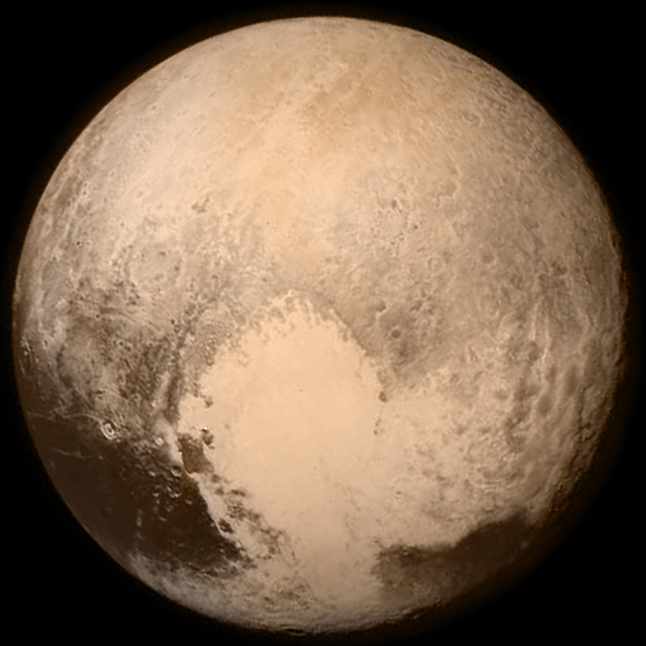 Venetia Burney was having breakfast on March 14, 1930, when her grandfather read aloud a newspaper story that said a new planet had just been discovered. This planet had been found at the farthest reaches of our solar system, in cold, dark space. Venetia, who was just 11 years old at the time, thought about it for a while and then told her grandfather, “I think Pluto would be a good name for it.”
Venetia Burney was having breakfast on March 14, 1930, when her grandfather read aloud a newspaper story that said a new planet had just been discovered. This planet had been found at the farthest reaches of our solar system, in cold, dark space. Venetia, who was just 11 years old at the time, thought about it for a while and then told her grandfather, “I think Pluto would be a good name for it.”
Some people claim that Venetia came up with the name after being inspired by the Walt Disney cartoon dog, also named Pluto. But there’s a problem with this theory. The animated dog, Pluto, was not created by Disney Studios until 1931–a full year later.
In truth, Venetia was inspired by ancient mythology, which fascinated her as a child. When her grandfather talked about the darkness of space, where this planet roamed, she thought it should be named after Pluto, the Roman god of the dark underworld. The P and L in Pluto also happened to be the initials of Percival Lowell, the man who discovered the new planet.
Venetia’s grandfather worked in the library at England’s Oxford University. So, when Venetia told him about her name for the planet, he contacted Herbert H. Turner, an Oxford friend and a professor of astronomy.
The rest is history, and the new planet became known as Pluto.
Sixty-two years later, in 1992, astronomers declared that Pluto no longer qualified as our solar system’s full-fledged ninth planet, and they began calling it a “dwarf planet” instead. But this past year, Pluto the former planet jumped back into the news as NASA’s New Horizons spacecraft zipped right by the dwarf planet and began sending back images of the faraway world. New Horizons, the fastest spacecraft ever, travelled 3 billion miles over the past nine and a half years to get there. Now that’s one long road trip.
Venetia Burney, or Venetia Phair as she was later known, always said she was very lucky to have been able to name a planet at age 11. She was in the right place at the right time, with a grandfather who just happened to know an important astronomer.
Which got me to thinking about our own planet:Â The more we learn about the universe, the more scientists realize that our planet Earth was at the right place at the right time.
When it comes to supporting life, “we are in the best possible place,” said Guillermo Gonzalez, author of The Privileged Planet. Lee Strobel interviewed Gonzalez for his book, The Case for a Creator, and this is what Gonzalez had to say about the Earth’s location in the galaxy:
“Our location provides enough building blocks to yield an Earth, while providing a low level of threats to life. I really can’t come up with an example of another place in the galaxy that is as friendly to life as our location. Sometimes people claim you can be in any part of any galaxy. Well, I’ve studied other regions–spiral arms, galactic centers, globular clusters, edge of disks–and no matter where it is, it’s worse for life. I can’t think of any better place than where we are.”
Gonzalez also told Strobel that if the distance of the Earth from the sun were moved by even five percent either direction, the result would be disaster. “Animal life would be impossible,” he said. “The zone for animal life in the solar system is much narrower than most people think.”
Has God created life on any other planets? At this point, only God knows. But what’s clear is that it is miraculous that our planet wound up so perfectly positioned for the existence of life. Call chance if you will. I call it God’s design.
If our Earth were as far away as Pluto, we would be in serious trouble. Actually, there wouldn’t even be a “we” if our planet were as far away as Pluto. We would never have existed.
Nehemiah 9:6 says, “You alone are the Lord. You have made the heavens, the heaven of heavens with all their host, the earth and all that is on it, the seas and all that is in them. You give life to all of them and the heavenly host bows down before You.”Â
I too bow down in amazement.
By Doug Peterson
